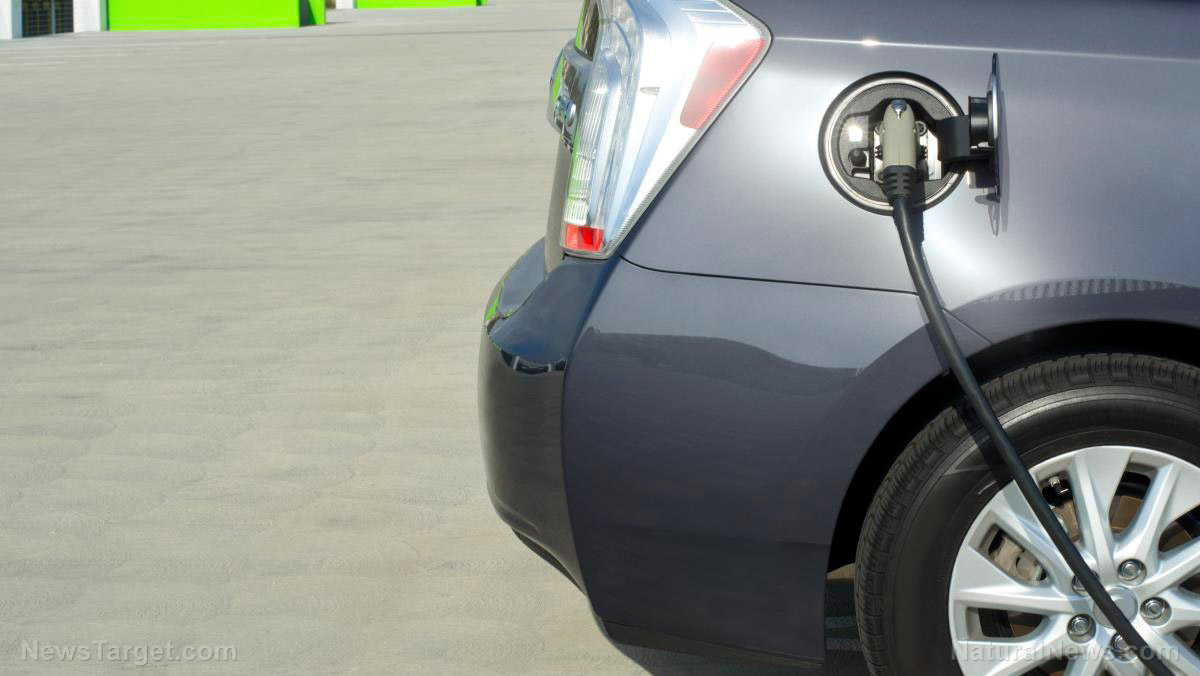Honda, LG to build $4.4 billion electric vehicle battery plant in the US
08/31/2022 / By Belle Carter

Japanese vehicle manufacturer Honda Motor and South Korean battery maker LG Energy Solution will invest in a $4.4 billion lithium-ion battery plant for electric vehicles (EVs) in the United States, the two companies announced on August 29.
Both companies stated that this venture will enhance electric vehicle production and improve the timely supply of batteries, putting them in the “best position to target the rapidly-growing” EV market in North America. The location of the plant has not been finalized but Honda reportedly is considering Ohio, where its main U.S. factory is located.
LG is aiming for an annual production capacity of approximately 40 GWh at the new plant, with the EV batteries being supplied exclusively to the Japanese car company’s North American plants for Honda and Acura EV models.
In a joint statement with LG, Honda CEO Toshihiro Mibe said: “Honda is working toward our target to realize carbon neutrality for all products and corporate activities the company is involved in by 2050. Aligned with our longstanding commitment to building products close to the customer, Honda is committed to the local procurement of EV batteries, which is a critical component of EVs.”
LG CEO Young-Soo Kwon added: “Our joint venture with Honda, which has a significant brand reputation, is yet another milestone in our mid- to long-term strategy of promoting electrification in the fast-growing North American market.”
Meanwhile, California announced a plan last week that would require all new vehicles sold in the state by 2035 to be either electric or plug-in electric hybrids. (Related: GREEN GOES STUPID: California to ban sale of gasoline-powered cars by 2035.)
Automakers to raise car prices, canceling out tax credits offered by Biden’s IRA
President Joe Biden’s Inflation Reduction Act (IRA) also included $369 billion allocation for efforts that would convince Americans to go green. This includes the proposed $7,500 tax credit for EV automakers and clients.
However, car makers have already announced price hikes that cancel out the offered tax credits.
In its updated pricing, Ford’s electric vehicles cost $6,000 to $8,500 more than the previous year. General Motors also announced the Hummer, its flagship EV, would be going up in price by $6,250.
Also, most of the current electric vehicles do not even qualify for the tax credits.
“The auto industry is warning that the vast majority of EV purchases won’t qualify for a tax credit mainly because to qualify for the credit, an electric vehicle must contain a battery built in North America with minerals mined or recycled on the continent,” the Associated Press reported.
John Bozzella, CEO of the Alliance of Automotive Innovation, said only 22 of the 72 currently available electric, hydrogen or plug-in hybrid models in the U.S. are eligible for the tax credit under the new rules.
“The $7,500 credit might exist on paper, but no vehicles will qualify for this purchase over the next few years,” Bozzella said in a statement.
Moreover, for an EV buyer to qualify for the full credit, 40 percent of the metals used in a vehicle’s battery must come from North America. By 2027, that required threshold would reach 80 percent. If the metals requirement isn’t met, both car manufacturers and buyers would be eligible for only $3,750.
Another rule is that half the batteries’ value must be manufactured in North America or the rest of the tax credit would be lost. This particular requirement would also grow stricter each year, eventually reaching 100 percent in 2029.
The EV itself must be manufactured in North America. All vehicles made overseas are not qualified.
Additionally, the tax credit would be available only to couples with incomes of $300,000 or less or single people with incomes of $150,000 or less. Trucks or SUVs with sticker prices above $80,000 or cars above $55,000 are not eligible.
Visit RoboCars.news for more news related to electric cars.
Watch the below video that talks about Americans’ disinterest in buying EVs.
This video is from the SecureLife channel on Brighteon.com.
More related stories:
EV price hikes cancel out $7,500 tax credits offered by government under Inflation Reduction Act.
EV market depends almost entirely on communist China – “going green” actually means going COMMIE.
Sources include:
Submit a correction >>
Tagged Under:
automakers, battery production, big government, bubble, conspiracy, deception, electric cars, electric vehicles, energy, EVs, Green New Deal, Honda, inflation, Inflation Reduction Act, lg, North America, power, price increase, products, supply chain, tax credits
This article may contain statements that reflect the opinion of the author
RECENT NEWS & ARTICLES
NewEnergyReport.com is a fact-based public education website published by New Energy Report Features, LLC.
All content copyright © 2018 by New Energy Report Features, LLC.
Contact Us with Tips or Corrections
All trademarks, registered trademarks and servicemarks mentioned on this site are the property of their respective owners.

















